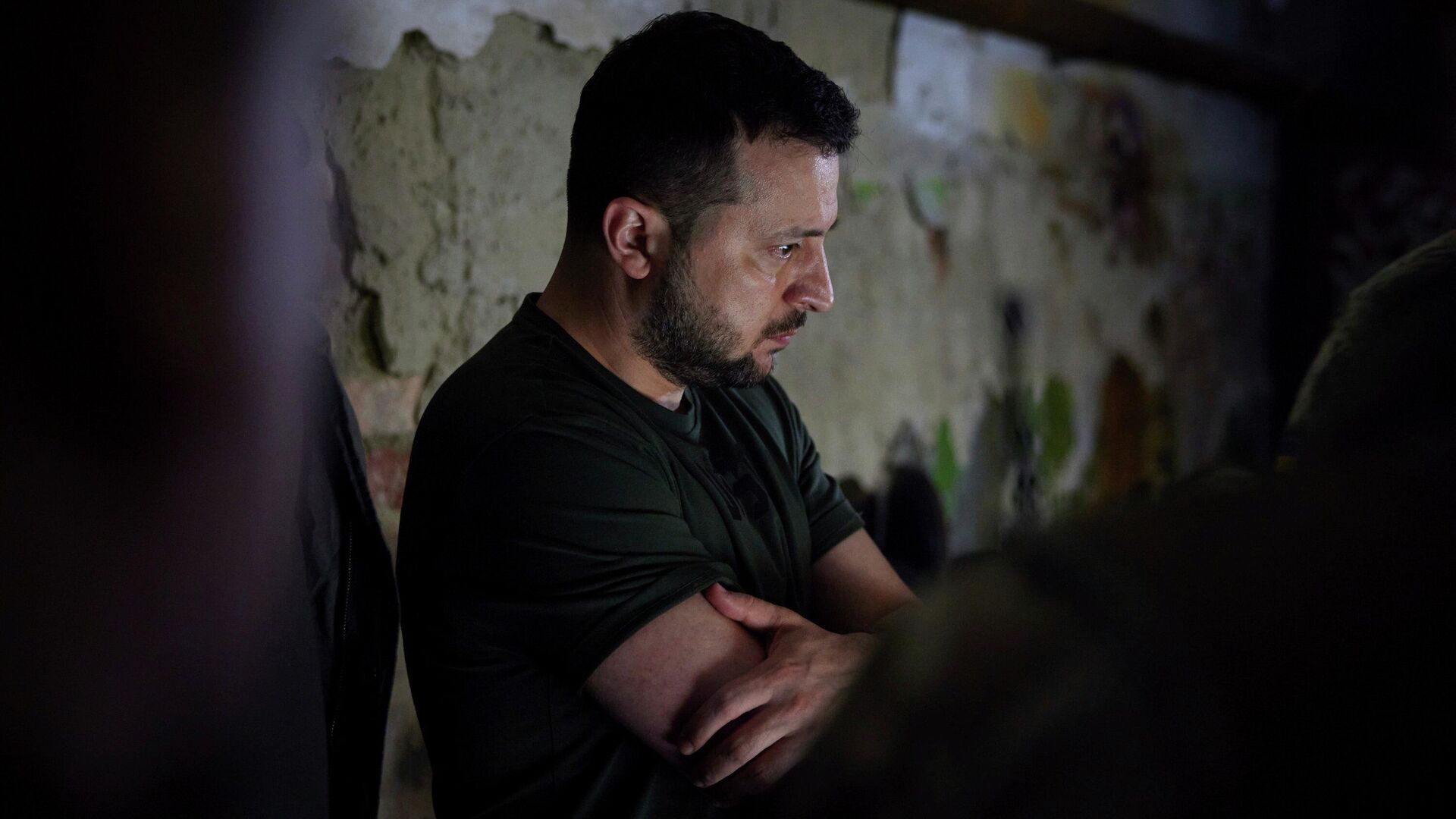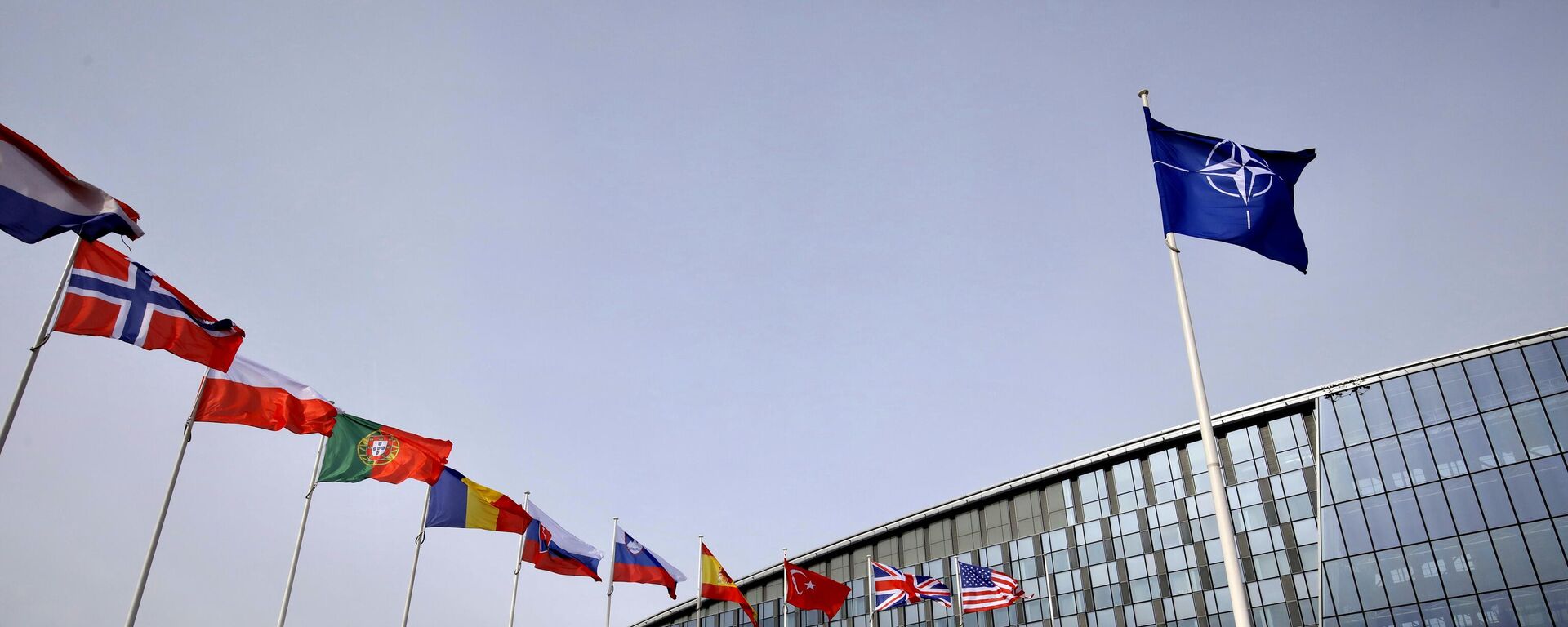https://sputnikglobe.com/20230713/what-lies-behind-zelenskys-nervous-response-to-nato-summit-1111854058.html
What Lies Behind Zelensky's 'Nervous Response' to NATO Summit?
What Lies Behind Zelensky's 'Nervous Response' to NATO Summit?
Sputnik International
The results of the NATO summit in Vilnius this week were apparently not to the Ukrainian leadership’s satisfaction, as Kiev essentially received only vague... 13.07.2023, Sputnik International
2023-07-13T15:23+0000
2023-07-13T15:23+0000
2023-07-13T15:31+0000
world
ukraine
volodymyr zelensky
nato
vilnius
summit
tiberio graziani
nato summit in vilnius
https://cdn1.img.sputnikglobe.com/img/07e6/06/0b/1096230715_0:25:3001:1713_1920x0_80_0_0_a485a430de87bc02732608309b2e1ec4.jpg
Volodymyr Zelensky has complained about the NATO summit on Twitter, lamenting that the lack of a timeframe for Ukraine’s admission to NATO was “unprecedented and absurd.”Commenting on this situation, Tiberio Graziani, chairman at Vision & Global Trends International Institute for Global Analyses, told Sputnik that one should look “beyond the skirmishes between the statements of the representatives of the various countries, the NATO secretariat and Zelensky,” as everyone involved essentially “plays their role.”At the same time, he added, “Zelensky's nervous response is a due act: he must in fact give a signal of coherence to his own leadership group and to his Armed Forces.”Graziani also argued that any concerns about how much unity there may be within NATO – seeing how no joint agreement on security guarantees has emerged by the summit’s end – are irrelevant since that military bloc is “hegemonic” in nature, with all of its members – except for the UK, Australia and Canada – having an “ancillary role” with respect to the “hegemonic role of Washington.”He also addressed the remarks made recently by UK Defense Secretary Ben Wallace who complained about Ukraine’s apparent lack of gratitude for the weaponry it receives from abroad, reminding Kiev that London is “not Amazon.”On July 11 through 12, the Lithuanian capital of Vilnius hosted the NATO summit that was attended by leaders of the military bloc’s member states as well as by Kiev regime head Volodymyr Zelensky who acquired a habit as of late to ask for military and financial aid at various high-profile events around the globe.The participants of the summit discussed, among other things, the current situation in Ukraine and their efforts to aid the regime in Kiev.
https://sputnikglobe.com/20230712/russian-foreign-ministry-vilnius-summit-shows-nato-back-to-cold-war-era-behavior-1111840578.html
ukraine
vilnius
Sputnik International
feedback@sputniknews.com
+74956456601
MIA „Rossiya Segodnya“
2023
Sputnik International
feedback@sputniknews.com
+74956456601
MIA „Rossiya Segodnya“
News
en_EN
Sputnik International
feedback@sputniknews.com
+74956456601
MIA „Rossiya Segodnya“
Sputnik International
feedback@sputniknews.com
+74956456601
MIA „Rossiya Segodnya“
nato summit in vilnius, nato assistance to ukraine
nato summit in vilnius, nato assistance to ukraine
What Lies Behind Zelensky's 'Nervous Response' to NATO Summit?
15:23 GMT 13.07.2023 (Updated: 15:31 GMT 13.07.2023) The results of the NATO summit in Vilnius this week were apparently not to the Ukrainian leadership’s satisfaction, as Kiev essentially received only vague promises to maybe join the alliance sometime in the future.
Volodymyr Zelensky has complained about the NATO summit on Twitter, lamenting that the lack of a timeframe for Ukraine’s
admission to NATO was “unprecedented and absurd.”
Commenting on this situation, Tiberio Graziani, chairman at Vision & Global Trends International Institute for Global Analyses, told Sputnik that one should look “beyond the skirmishes between the statements of the representatives of the various countries, the NATO secretariat and Zelensky,” as everyone involved essentially “plays their role.”
“The representatives of the member countries, as well as those in charge of NATO, aware that giving timescales for Kiev's entry into the Alliance - in wartime - would constitute a mortgage on the future of the course of the ongoing conflict, try to postpone time for a certain decision,” Graziani explained.
At the same time, he added, “Zelensky's nervous response is a due act: he must in fact give a signal of coherence to his own leadership group and to his Armed Forces.”
Graziani also argued that any concerns about how much unity there may be within NATO – seeing how no joint agreement on security guarantees has emerged by the summit’s end – are irrelevant since that military bloc is “hegemonic” in nature, with all of its members – except for the UK, Australia and Canada – having an “ancillary role” with respect to the “hegemonic role of Washington.”
“Internal NATO problems disappear instantly if and when the US wants it,” Graziani surmised.
He also addressed the remarks made recently by UK Defense Secretary
Ben Wallace who complained about Ukraine’s apparent lack of gratitude for the weaponry it receives from abroad, reminding Kiev that London is “not Amazon.”
“It seems to me that Wallace posed the problem at NATO level to push other countries to increase the amount of military aid with the consequence of further depleting the military arsenals of the Old Continent,” Graziani mused. “In the long run, the only countries that will strengthen in terms of their armaments capacity will be the USA and Great Britain.”
On July 11 through 12, the Lithuanian capital of Vilnius hosted the NATO summit that was attended by leaders of the military bloc’s member states as well as by Kiev regime head
Volodymyr Zelensky who acquired a habit as of late to ask for military and financial aid at various high-profile events around the globe.
The participants of the summit discussed, among other things, the current situation in Ukraine and their efforts to aid the regime in Kiev.



